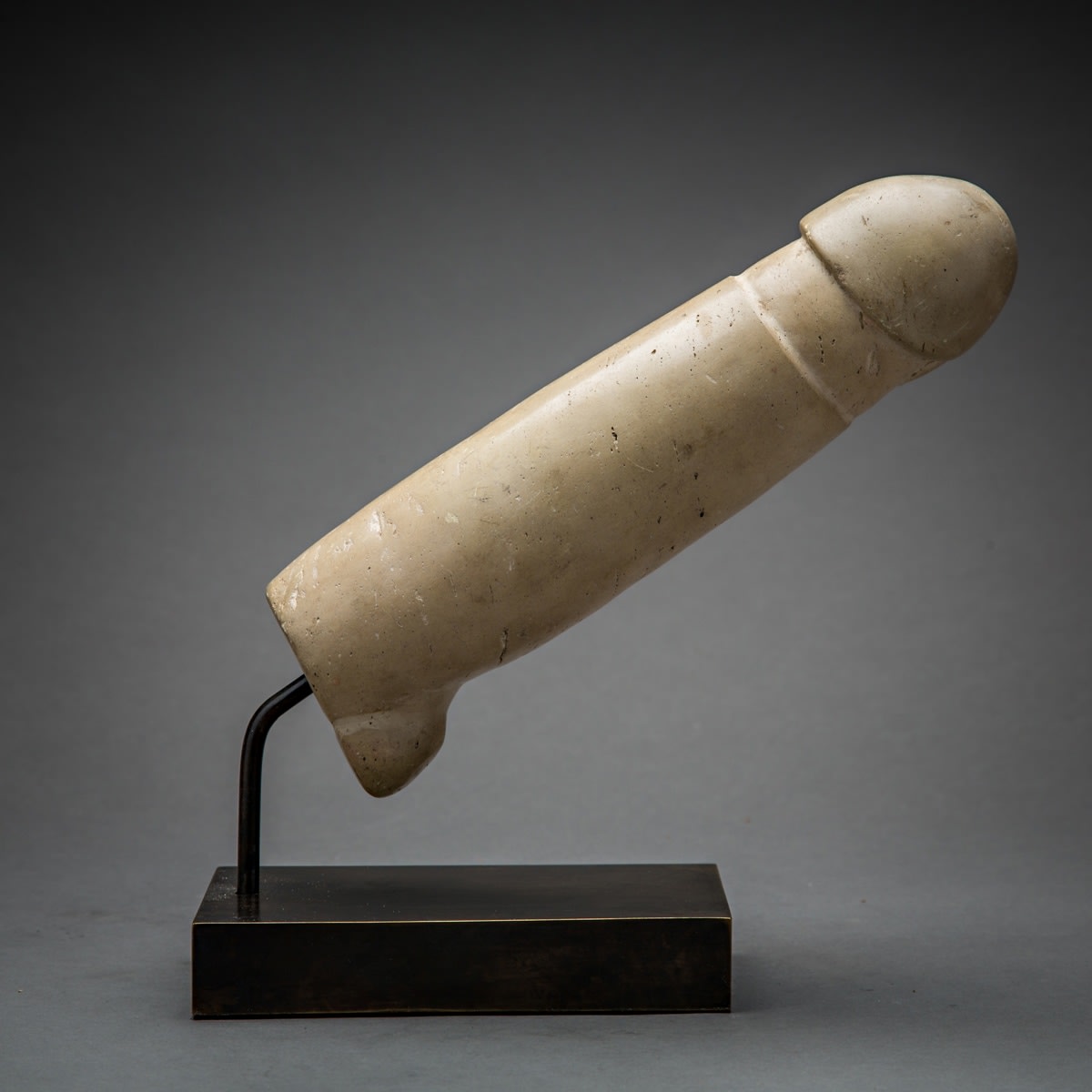Roman Votive Phallus, 100 CE - 300 CE
Stone
PH.0145
Representations of the phallus abound in both the art and the literature of the Roman world. On frescoes, in both private homes and public buildings, on amulets, statues, etchings, tripods,...
Representations of the phallus abound in both the art and the literature of the Roman world. On frescoes, in both private homes and public buildings, on amulets, statues, etchings, tripods, drinking cups and vases, exaggerated phallic images, these purportedly apotropaic symbols protect the inhabitant, the passerby, the wearer, the user from the outside evil.
The contemporary Latin literature, Roman satire and elegy in particular (Catullus, Martial, Juvenal, Horace, Tibullus), and the Priapea, a collection of poems about the phallic god Priapus, offer descriptions of the phallus and its functions. Many scholars have examined Roman phallic imagery in terms of eroticism, pornography and sexual orientation, considering the apotropaic uses of the phallus as a secondary component of a broader study of Roman sexuality. But artistic examples of a phallus endowed with magical, protective properties must be looked at separately from other uses of phallic representation in pornographic and erotic studies of sexuality. In ancient Roman religion and magic, the fascinus or fascinum was the embodiment of the divine phallus. The word can refer to the deity himself (Fascinus), to phallus effigies and amulets, and to the spells used to invoke the deity's divine protection.
Pliny calls it "medicus invidiae", a remedy for envy or the evil eye.
The English word "fascinate" ultimately derives from Latin fascinum and the related verb fascinare, "to use the power of the fascinus," that is, "to practice magic" and hence "to enchant, bewitch."
The contemporary Latin literature, Roman satire and elegy in particular (Catullus, Martial, Juvenal, Horace, Tibullus), and the Priapea, a collection of poems about the phallic god Priapus, offer descriptions of the phallus and its functions. Many scholars have examined Roman phallic imagery in terms of eroticism, pornography and sexual orientation, considering the apotropaic uses of the phallus as a secondary component of a broader study of Roman sexuality. But artistic examples of a phallus endowed with magical, protective properties must be looked at separately from other uses of phallic representation in pornographic and erotic studies of sexuality. In ancient Roman religion and magic, the fascinus or fascinum was the embodiment of the divine phallus. The word can refer to the deity himself (Fascinus), to phallus effigies and amulets, and to the spells used to invoke the deity's divine protection.
Pliny calls it "medicus invidiae", a remedy for envy or the evil eye.
The English word "fascinate" ultimately derives from Latin fascinum and the related verb fascinare, "to use the power of the fascinus," that is, "to practice magic" and hence "to enchant, bewitch."
